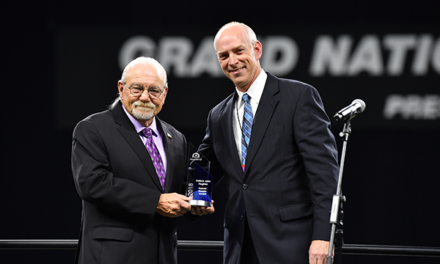
Andrea Brown is an example of how music, and the connections created from the passion for music, can change a person’s life in ways they never expected.
Brown was from a very small rural town in west Tennessee and was one of two horn players. In eighth grade she was invited to join the high school band and it sparked her love for music. “It was definitely in eighth grade when I was marching with the high school band that I knew I wanted to be in music. I can’t remember if I wanted to be a conductor or a performer, but I knew music is what I wanted to do,” Brown said.
Brown is the first college graduate in her family. She graduated high school and went to school at Austin Peay State University in Tennessee. While there, she played horn, sang in the chamber choir, played piano in the jazz ensemble, and played in multiple quintets. She spent a couple summers at Brevard Music Center, which eventually lead her to attend graduate school to study horn performance. While studying horn, she realized she wanted to conduct, so she picked up an additional master’s degree in music education with a conducting emphasis.
After teaching at a few different schools, including her alma mater Austin Peay, she received her doctorate in conducting and is currently the Assistant Director of Bands at the University of Michigan.
“Looking at where I started, one would probably not guess that I would be doing what I’m doing today. I have to say that my high school band director got me started with that. He was a person that everyone thought so highly of in our region, in our state and he worked with my parents to get me to the Mid West Clinic when I was a junior in high school and it was life changing,” said Brown. She attributes her success to the many connections she cultivated throughout her life. “I think making human connections has been incredibly important to my career because it’s allowed me to experience aspects I never thought as an eighth grader, thinking I want to be a music teacher at some point, “ said Brown.
It is Brown’s mission to make connections with and inspire students, especially women. “I didn’t have an female conductors growing up or through my middle school, high school, college days. There were a few icons I knew of and I am very fortunate to call them friends now, but there weren’t any in my immediate area,” she said. Brown understands the small percentage of women represented, especially at the collegiate level. It is important to Brown to do whatever she can to even out the playing field.
Brown said, “I think what drives me is the interaction with people making music. I’m very fortunate that most of my career has been with students at a college level. That’s definitely the group that I match better with and I think what really keeps the spark fueled and fired.” She continues to use her experiences to impact those around her the same way many passionate directors, teachers, and professors did for her.



